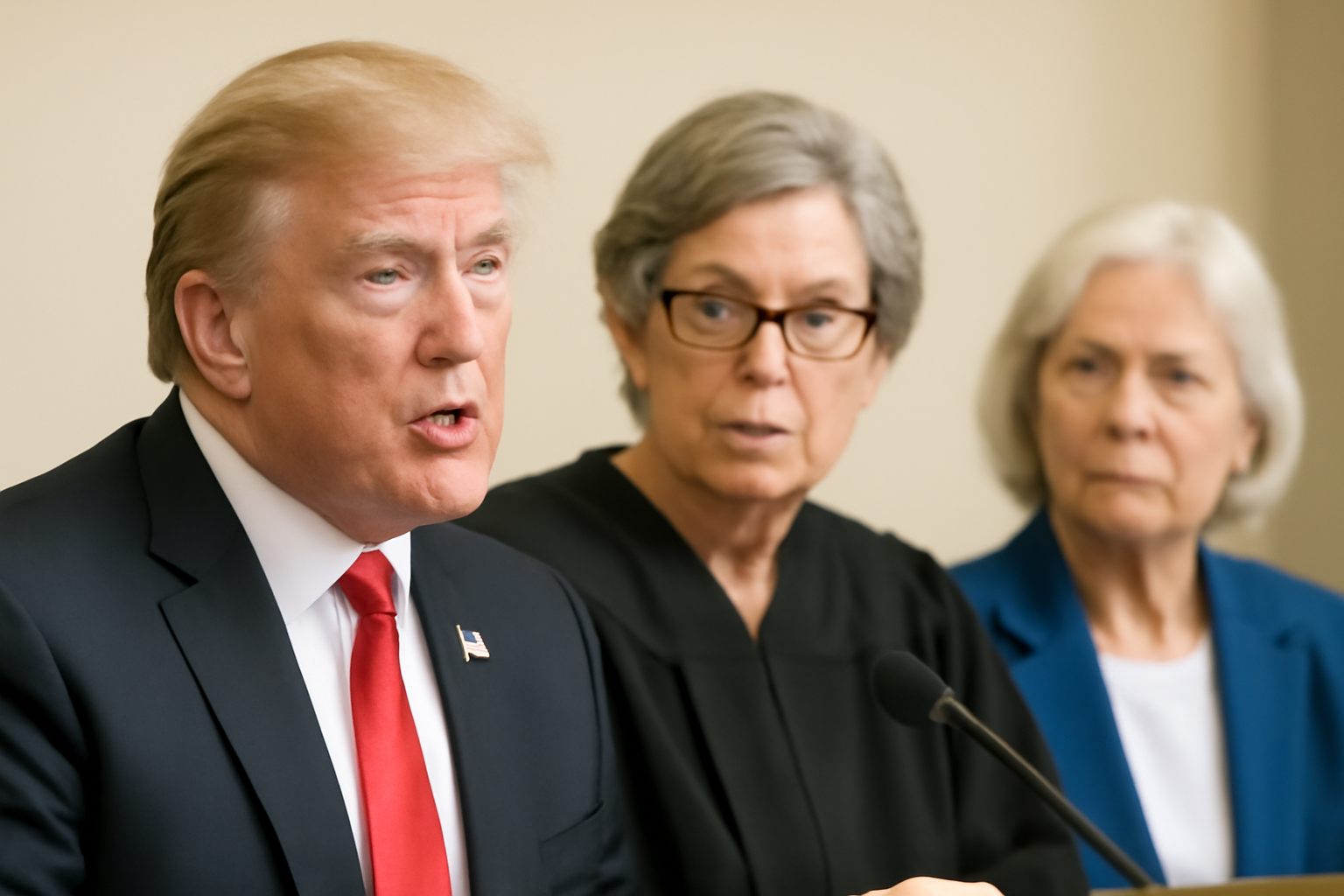
A lawyer from Trump's administration has introduced a jaw-dropping legal argument, claiming that presidents can constitutionally fire women and people over 40 from federal positions at will. This argument made waves during oral proceedings at Washington D.C.'s Circuit Court, marking a significant moment in discussions about how far presidential power can stretch.
Presidential power on trial
During this hearing, Judge Karen Henderson asked Deputy Assistant Attorney General Eric McArthur if it's within a president's power just like that, cut women or folks over 40 from their jobs. McArthur suggested that while it's possible, such actions might still clash with other constitutional safeguards.
Judge Justin Walker was quick on his feet, bringing up how actions like these might clash with promises made by our 14th Amendment, which promises equal protection under law. This back-and-forth highlights yet another chapter in our long-running drama between executive power and individual rights.
The ripple effect on federal workers
This brewing debate traces back from when Cathy Harris was removed from her role at Merit Systems Protection Board (MSPB) and Gwynne Wilcox was nudged out from National Labor Relations Board (NLRB), both picks by President Joe Biden. Wilcox, notably, was making history as both first Black woman on that board and first person removed by a sitting president, which predictably kicked up a lot more attention and public chatter.
A few district judges didn't mince words, labeling these dismissals as unlawful, standing firm on those roles only being vacated "for cause." Yet, Trump folks have taken this fight upstairs, banking on their read on executive power being legit.
The constitutional stakes
McArthur stood his ground, defending those dismissals with a stance on executive removal powers, suggesting these acts could withstand a constitutional sniff test. Yet, not everyone was buying it, especially from those wearing judicial robes.
Judge Patricia Millett wasn't holding back, questioning if dismissing people over 40 really holds any water under constitutional scrutiny.
Legal and political reverberations
This legal tussle might pack a punch, especially in terms impacting LGBTQ+ and other marginalized communities, as it probes where presidential power starts and stops, especially regarding workplace diversity and inclusion. For LGBTQ+ folks, this might mean a broader interpretation looming over hiring practices and employee protections.
In a kindred moment, U.S. District Judge Rudolph Contreras called out Harris's dismissal as illegal, pointing out her proven track record. Likewise, Judge Beryl A. Howell, on Wilcox's case, put a foot down on presidential overreach, underscoring that no president floats above law.
Bigger picture and community vibe
This legal spat sits inside a broader storyline: how do we juggle executive power versus our constitutional rights? It's an ongoing saga protecting employees from being kicked out on whims tied gender or age, a thorny issue with special weight in LGBTQ+ circles.
The push towards keeping federal roles diverse and inclusive isn't just checking boxes—it's about fair representation and equity. How these legal maneuverings shake out could send ripples through employment ethics and discrimination shields in federal jobs.
As this legal slow dance continues, LGBTQ+ voices and allies stand firm in their pledge towards fair treatment and equal chances, hammering home just how vital constitutional rights hold against power grabs.
To keep in step with these impactful legal turns and more, you might want updates that break down how political decisions reverberate through LGBTQ+ arenas and other marginalized patches.
Related Posts
Triumphant Trans Woman Wins Legal Battle and Inspires Others to Stand Up for Their Rights
Breaking new ground: a landmark victory in transgender rights After battling in courtrooms and enduring endless challenges, Diana Portillo, a transgender woman, has secured a monumental victory in her decade-long fight against workplace discrimination. The result? Nearly $1 million awarded in a historic settlement. But this isn't just a win on paper—it represents a powerful precedent in combati [...]
Pride Month in Latin America: Protests and Demands for Equality
**Celebrating Pride and advocating LGBTQ+ rights in Latin America** Pride Month in Latin America was a lively mix where celebration met activism. Communities united, not just throwing a party but making a stand—demanding equality and pushing governments toward better protection and rights recognition. Throughout Latin America, pride events erupted in marches and cultural displays, each with a c [...]
Transgender Erasure Actions Implemented by National Park Service
```html Trump administration's impact on national park service and transgender recognition The Trump administration made notable moves in undermining transgender representation, which included directing agencies like National Park Service not include "T" and "Q" when they refered “LGBTQ” in any official communication. This move seems part a broader plan by this administration aimed at reducin [...]